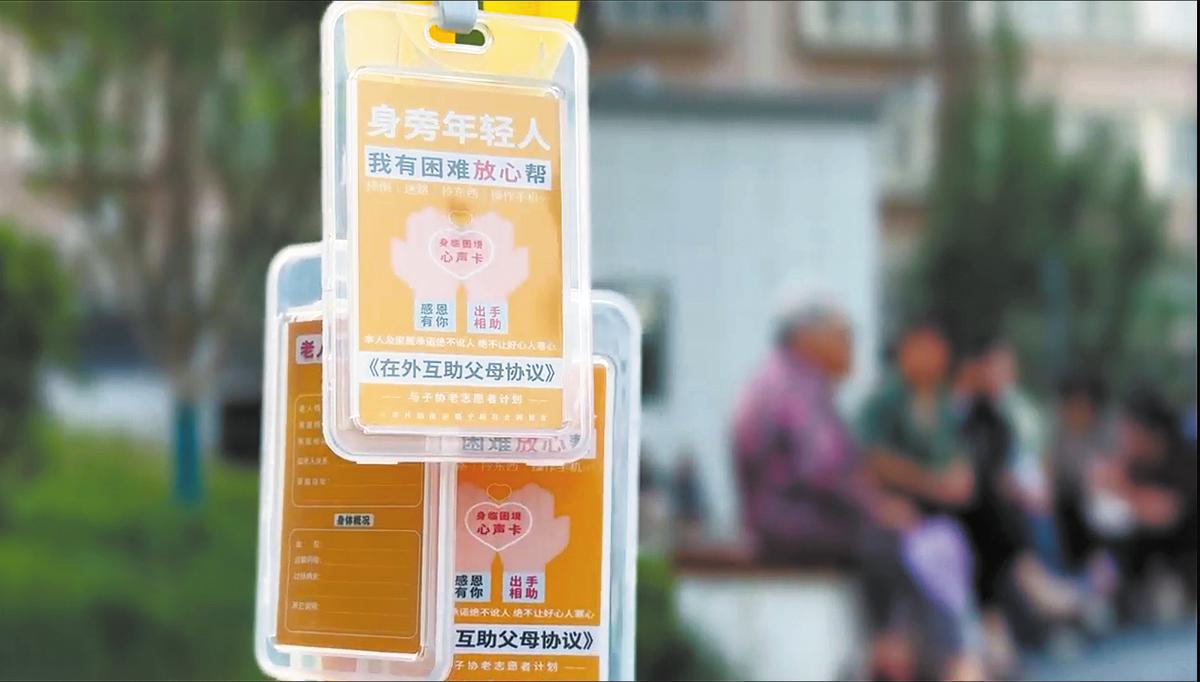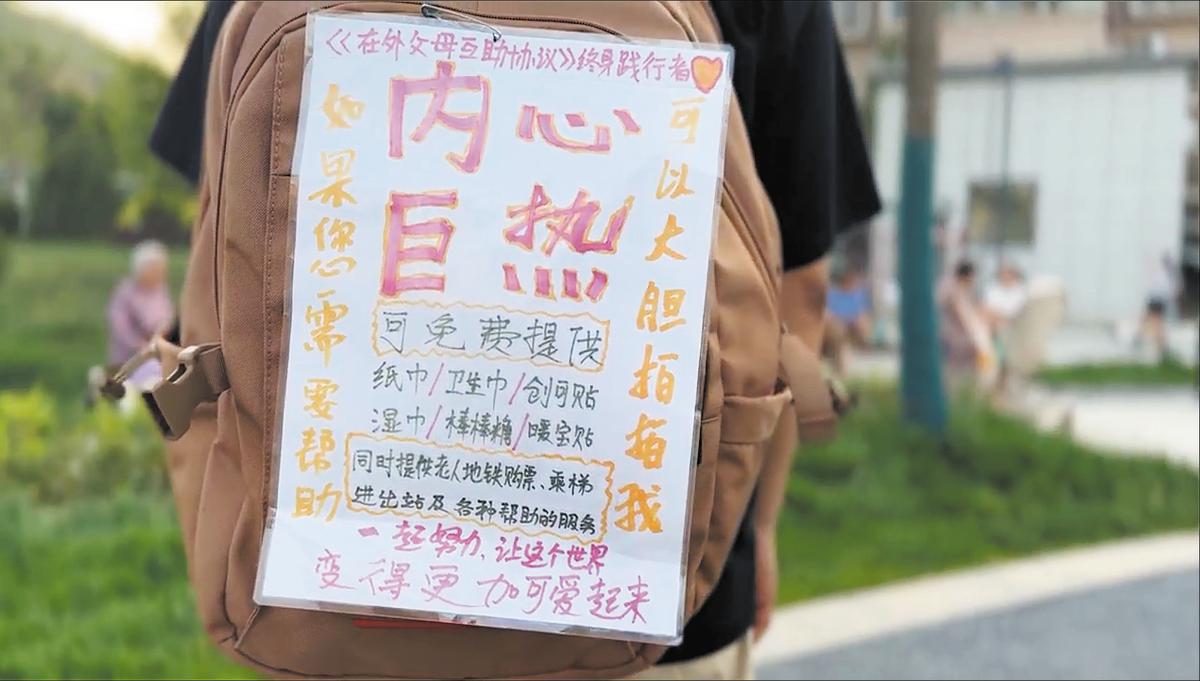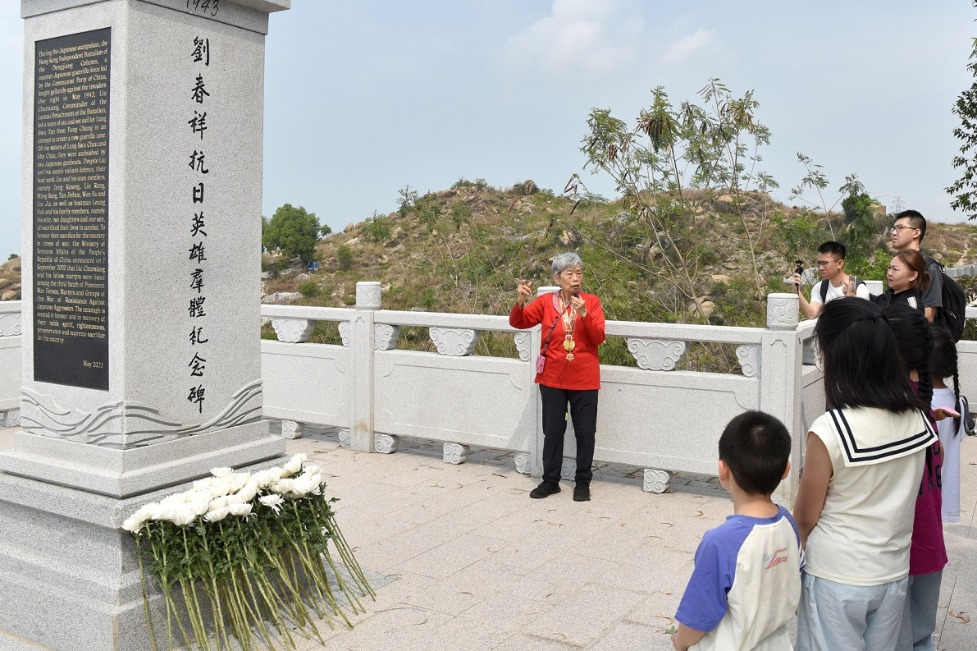'Pat Card' gives elderly strangers a helping hand
One man's idea growing into a bigger movement


"If you need help, just pat me." These words, printed on a red card clipped to Zhao Chen's backpack, have become a signal of care across the crowded subway stations and bustling sidewalks in Xi'an, Shaanxi province.
Dubbed the "Pat Card", it invites elderly strangers to reach out for assistance. Behind the idea is 39-year-old Zhao Chen, who has spent over a decade helping older adults, long before becoming a full-time volunteer and social innovator.
His journey began in 2014. "When my daughter was born, my mother came from our rural hometown to help," Zhao said. "She got lost on the bus and we couldn't reach her. A university student noticed her struggling and walked her all the way to the hospital."
The single act of kindness stayed with him. Since then, Zhao has made it his mission to assist elderly strangers, especially those from rural areas navigating unfamiliar urban environments. "I recognize that lost, hesitant look," he said. Offering directions, carrying bags, or simply asking "Do you need help?" became part of his daily life.
For years, Zhao kept his acts private until early 2024, when he filmed himself helping an elderly man find a subway exit. He posted the video on Douyin, the popular Chinese social media platform, where it resonated deeply. "People said the man reminded them of their own parents or grandparents," Zhao said. "The heartfelt comments and positive feedback encouraged me to keep sharing."
One encounter left a lasting mark. In September 2024, at a Xi'an subway station, Zhao saw an elderly man moving slowly, his neck painfully twisted from ankylosing spondylitis.
The man, an engineer from Wuhan, Hubei province, who had come to support western China's development, had just left a hospital and was struggling to get home alone.
Zhao held his hand, guided him through the station, hailed a cab, and accompanied him back. Along the way, strangers joined in — a passerby slipped Zhao cash to help, a food vendor offered a discounted meal and extra buns, and a taxi driver, moved by the story, refused payment.
When Zhao posted the experience online, the video reached over 11 million viewers.
The overwhelming response inspired him to shift from solo acts to creating an open call for mutual help.

He began with a laminated A4 sheet taped to his backpack that read "If you need help, tap me." His bag soon held practical items, including tissues, water, candy and heart medication.
Online followers suggested a more portable design. In December 2024, Zhao redesigned the message into a card and offered it for free. "Over 800 people signed up overnight. Some said that gave them confidence," he said.
That same year, he initiated the Mutual Help Parent Pact, a grassroots campaign encouraging volunteers to look after others' parents when away from their own. Since then, five batches of volunteers have joined the network.
Today, the campaign has grown to include over 7,600 verified volunteers across 34 provincial-level regions in China — each equipped with a kit containing the Pat Card, guiding principles, and more.
The initiative's ripple effects have even crossed borders. Zhao has received inquiries from Chinese communities in Malaysia, Canada and other countries, where volunteers seek to follow suit, helping elderly parents in their local neighborhoods.
Members involved include college students, teachers, delivery riders and healthcare workers. They connect via WeChat groups, sharing stories and supporting each other.
"No fees, no certificates," Zhao said. "I don't run an association. I just encourage them to help where they can, when they can."
Much of the project's evolution, from card designs to community guidelines, stems from volunteer feedback.
Zhao also created a "Heart Voice Card" designed for older adults. It includes medical information and emergency contacts.
With privacy in mind, Zhao is now working with a tech company to embed QR codes and chips, allowing secure access to the holder's information.
His next step is a digital mutual aid platform that allows volunteers to register their time and skills. "It's an experiment in social trust," Zhao said, "a youth-driven, decentralized support system.
"Helping others is helping myself. One day, I'll be old too. And I hope then, someone will walk up and ask, 'Uncle, do you need a hand?'"
guoyanqi@chinadaily.com.cn
- 'Pat Card' gives elderly strangers a helping hand
- Nation sees progress in fight against hepatitis B
- Guideline targets cybercrime enablers
- Nation shares early warning weather system with world
- China activates emergency response as torrential rains pummel Beijing, Hebei
- Measures taken nationwide to negate record temperatures





































